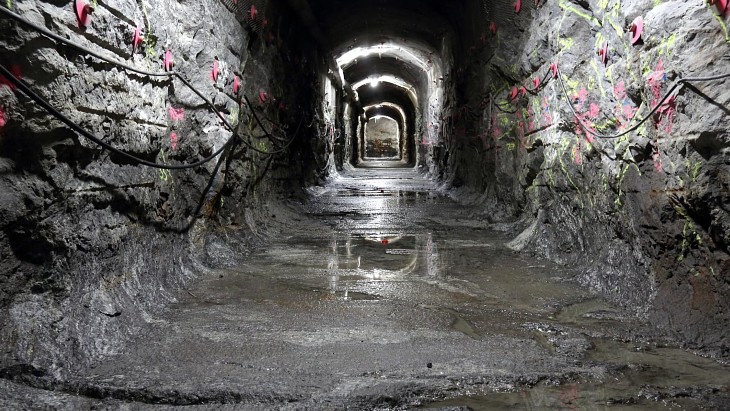The US Department of Commerce (DoC) must reassess the rationale for its tariffs on Russian uranium enrichment after a decision by the US Court of International Trade (CIT). The ruling follows an earlier decision that uranium enrichment was a service and not a product.
Currently, import duties are imposed on low-enriched uranium imported from Russia and the former Soviet states of Ukraine, Kazakhstan, Kyrgyzstan, Tajikistan, Uzbekistan.
In the final days of the Soviet Union, the country had earned foreign currency by supplying large amounts of very cheap low-enriched uranium to international markets and using its over-capacity in uranium enrichment. The US Department of Commerce (DoC) reacted by launching an investigation into what measures would be necessary to protect the US uranium enrichment sector but the end of the Soviet Union complicated this investigation and it was decided to suspend it and settle on an import duty of 115.5%. The European Union also brought in quotas to protect enrichers within its borders.
A challenge to the Suspension Agreement was brought by Russia's Tenex and a group of American electricity generators - the Ad Hoc Utilities Group (AHUG) - after a separate uranium anti-dumping case ruled that uranium enrichment was a service and not a product.
Judge Pogue of the CIT agreed with Tenex and AHUG that the earlier decision meant that the DoC would be acting unlawfully if it did not re-examine its case for import duties on uranium enrichment carried out in the former Soviet Union. Any revised case for trade barriers would not be allowed to rely on uranium enrichment.
Sergey Kiriyenko, head of Russia's Federal Atomic Energy Agency (Rosatom) welcomed the decision. Moscow Today reported him as saying it was "a kind of present to our nuclear sector." Soon after Kiriyenko took his role at the top of Russia's nuclear industry at the end of 2005 he declared that removing barriers to Russian uranium exports would be a top priority.
In September Russia concluded an agreement whereby it could bring Australian uranium to the country for enrichment and before sale to third countries. This is theory could allow Russia to use its over-capacity in enrichment on the international nuclear fuel market.
The US side of the legal saga remained bullish. Uranium enricher Usec said that it had expected the CIT's decision and also expects the DoC to make a new case for trade barriers.
Usec said US utilities' use of very cheap Russian enrichment capacity would be a "significant threat to the ability of the US enrichment industry to deploy new production capacity." Usec itself is currently working hard to do just that, as it constructs the Lead Cascade of its American Centrifuge facility.
Usec also said that it is still considering appealing the decision that labelled enrichment as a service and that no new version of the Suspension Agreement could come into force until all appeals had been completed.
Further information
Tenex
Usec
WNN: Australia-Russia bilateral open door for uranium trade
WNN: Usec begins testing American Centrifuge Lead Cascade
Suspension Agreement rationale to be revised
The US Department of Commerce must reassess the rationale for its tariffs on Russian uranium enrichment after a decision by the US Court of International Trade. The ruling follows an earlier decision that enrichment was a service and not a product.





_49562.jpg)






